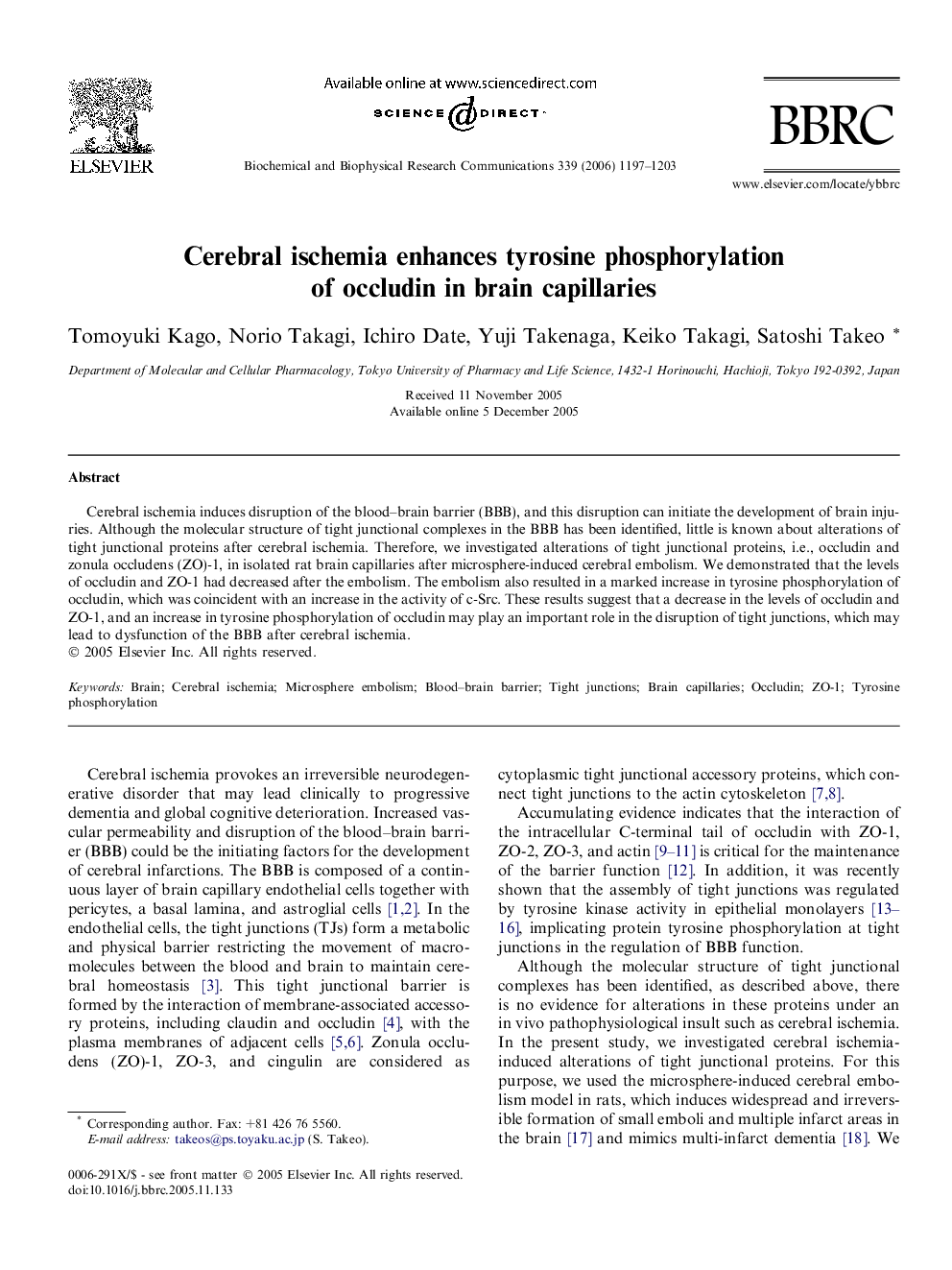| Article ID | Journal | Published Year | Pages | File Type |
|---|---|---|---|---|
| 1940878 | Biochemical and Biophysical Research Communications | 2006 | 7 Pages |
Cerebral ischemia induces disruption of the blood–brain barrier (BBB), and this disruption can initiate the development of brain injuries. Although the molecular structure of tight junctional complexes in the BBB has been identified, little is known about alterations of tight junctional proteins after cerebral ischemia. Therefore, we investigated alterations of tight junctional proteins, i.e., occludin and zonula occludens (ZO)-1, in isolated rat brain capillaries after microsphere-induced cerebral embolism. We demonstrated that the levels of occludin and ZO-1 had decreased after the embolism. The embolism also resulted in a marked increase in tyrosine phosphorylation of occludin, which was coincident with an increase in the activity of c-Src. These results suggest that a decrease in the levels of occludin and ZO-1, and an increase in tyrosine phosphorylation of occludin may play an important role in the disruption of tight junctions, which may lead to dysfunction of the BBB after cerebral ischemia.
